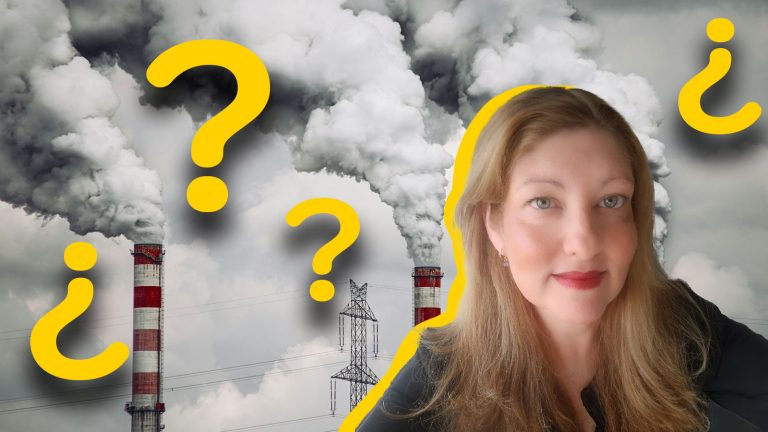A reader asked us:
Why don't they crack down on the industrialized countries that emit the most carbon dioxide and are destroying our planet? With so much plastic waste ending up in the oceans, something must be done so that future generations can enjoy our planet.
We enlisted the help of writer Johnny Carolina Ponce to answer this all-important question. This is his answer:
Historically, industrialized countries have emitted large amounts of carbon dioxide (CO2), but they remain key to global efforts to mitigate climate change. Carbon emissions remain a critical global issue that requires immediate and decisive action, especially by the most developed countries.
The question of why industrialized countries, which emit such large amounts of carbon dioxide, are not getting tough is a legitimate question that reflects one of the biggest tensions in global climate negotiations. Global climate negotiations are a dialogue between national and international actors aimed at reaching agreement on how to combat climate change, reduce greenhouse gas emissions and mitigate its impacts. These negotiations usually take place at international conferences, such as the Conference of the Parties to the United Nations Framework Convention on Climate Change (COP), where commitments, policies and actions to curb global warming are discussed. For example, the Loss and Damage Facility is a mechanism agreed during COP27 to finance the most vulnerable countries’ response to loss and damage caused by climate disasters. The fund aims to compensate countries that have contributed little to climate change but are most affected by impacts such as storms and droughts.
he Paris AgreementSigned in 2015, the goal is to limit global temperature rise to 2°C above pre-industrial levels, and if possible to 1.5°C. However, the implementation of the agreement depends largely on the political will of countries to reduce emissions. Industrialized countries, historically responsible for most emissions, must take drastic measures.
Additionally, at the recent COP29, mechanisms such as carbon credit sales and debt by nature were discussed. The sale of carbon credits allows developing countries to obtain financing in exchange for their contribution to reducing global emissions, although their effectiveness remains controversial. Debt, on the other hand, essentially offers vulnerable countries the possibility of restructuring their foreign debt in exchange for specific climate actions such as environmental protection. Both instruments aim to mobilize resources for vulnerable areas, but both face political and financial challenges.
Political will is key obstacle to climate action
One of the biggest obstacles facing climate action is resistance from the fossil fuel industry. The industry sees climate measures as a direct threat to its business model and has invested millions of dollars in campaigns aimed at convincing the public that climate change is not a pressing issue or even exists. according to a report influence mapmajor fossil fuel companies allocated more than $1 billion over a decade to block effective climate policy.
Another challenge is the anti-regulatory ideology espoused by powerful political parties in many countries, including the United States. This approach rejects government interventions critical to climate action, such as emissions regulation and clean energy promotion. In this context, political polarization exacerbates the lack of consensus and slows down the adoption of measures.
Globally, another problem is limited public understanding of climate change. Research conducted pew research center and other agencies stress that scientific knowledge about climate change and its impacts remains insufficient in many countries, making it difficult for citizens to pressure political leaders to make decisive decisions.
Finally, the United States’ status as a global superpower and its impact on global climate agreements. The country's withdrawal from the Paris Agreement in 2017 under Donald Trump's administration is a clear example of how a lack of political will by a single actor can undermine international commitments. Although the United States rejoined the agreement in 2021, a lack of consistency in participation has created mistrust between countries and put global goals at risk.
To overcome these obstacles, it is crucial to promote a cultural shift to better understand the problem, implement strong regulations at the national and international levels, and build political commitment that transcends ideology and electoral cycles.
Use of plastic
When it comes to plastic use, an ambitious global plastics deal is our best chance to fight plastic pollution. However, UN member states failed to agree on a global deal this year. They plan to resume negotiations in 2025.
Faster and more decisive action is urgently needed, particularly to mitigate the impact of plastic waste and CO2 emissions.
